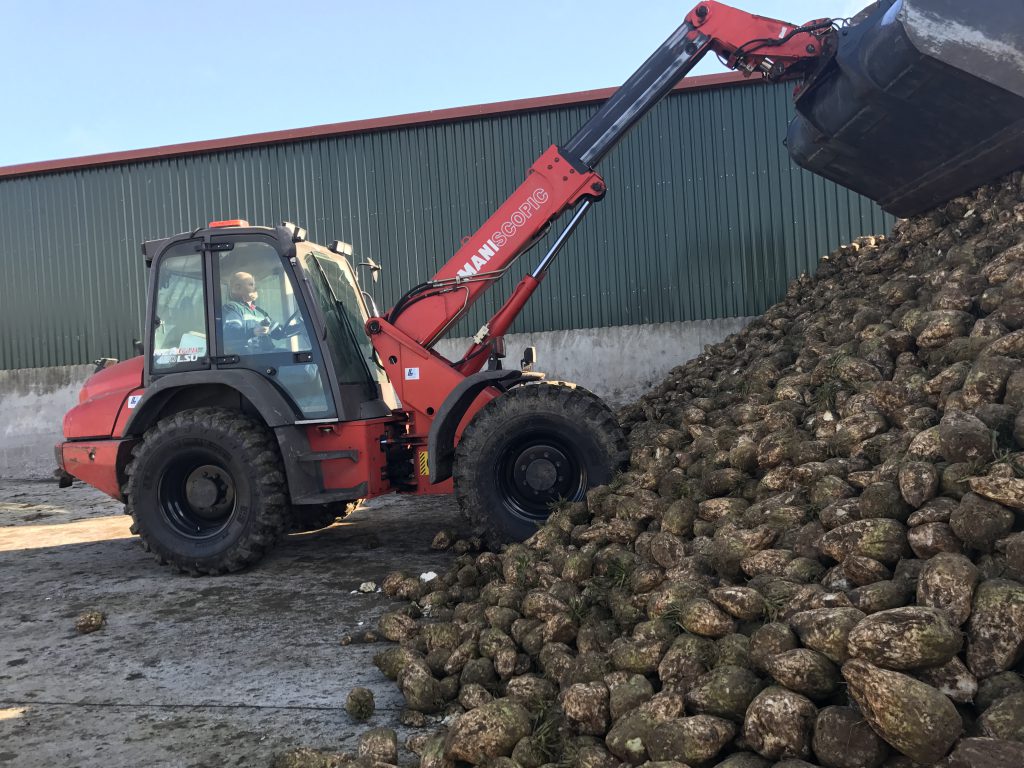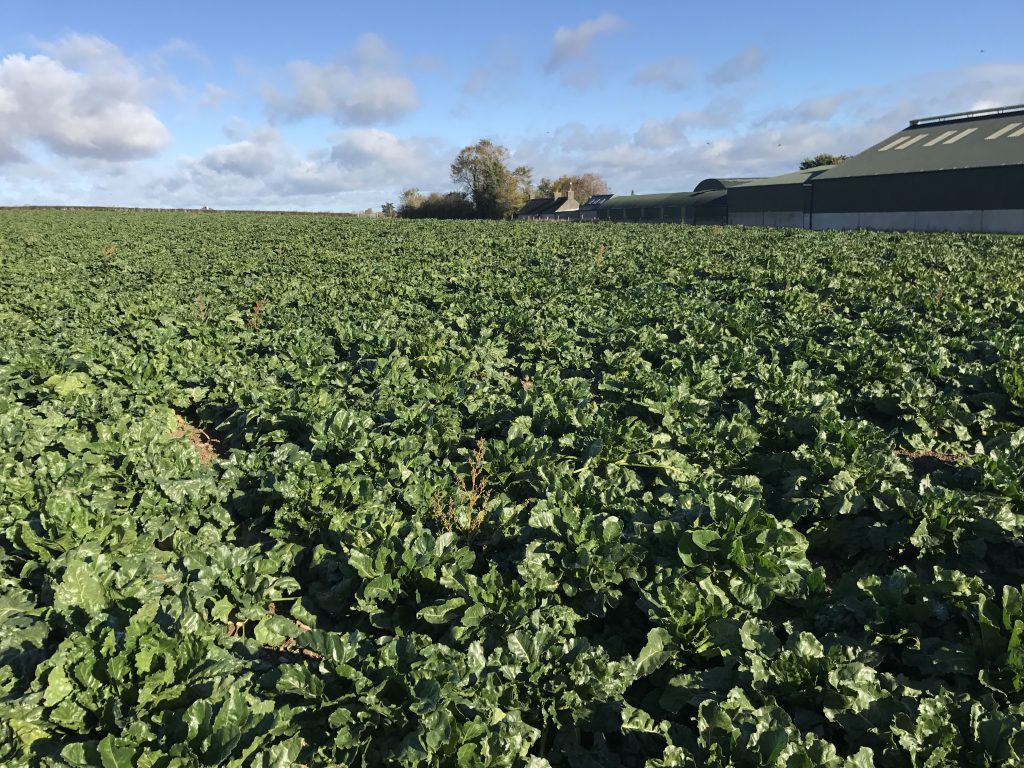Fodder beet prices are “leaving a lot to be desired” as we move towards the end of January, AgriLand has been told.
The general feeling across the board is that fodder beet yields were quite good, with one Co. Kildare based farmer describing it as “very, very good this year”.
There are no great changes in varieties this year – Magnum and Enermax remain popular. Growers told AgriLand this is because those particular varieties have the highest dry matter (DM) content.
Disappointingly for the beet traders, however, is the price per tonne of beet hasn’t been as fruitful as the yields.
A large percentage of Ireland’s fodder beet is grown in Leinster and Munster; the highest proportion of it being grown in the south-east of the country.
AgriLand spoke with a number of fodder beet traders around the country, as well as farmers who grow beet for their own use, to get an idea of prices and sales.
Leinster
Starting in Leinster, speaking to one beet grower in the north of the province, it was made very clear that he felt in order for a beet trader to make a viable profit they must be receiving €40/t.
One beet farmer in Co. Meath – who grows fodder beet with the sole purpose of selling it on to farmers for feeding – told AgriLand this week that it was imperative he receives €40/t to make a living.
Beet which is washed goes up by €7/t in this particular operation, with delivery at cost value. The Meath-based grower said: “We’d delivery lorry loads most places as long as our diesel costs were covered.
There has been a decent crop with 28t/ac or 30t/ac being harvested and it’s only just now that beet is starting to sell.
He concluded by saying that he grows “Magnum and Enermax” beet because “it has the highest DM% which is what the farmer is looking for”.
Towards the south-east of the country in counties Wexford and Kilkenny, the price does appear to be closer to €35/t. This, in most cases, is quoted as beet which “was surplus” to many farmers, which is their reasoning for the lower prices.
A lot of farmers grow beet for their own use in this part of the country and then sell what they don’t need.
Similarly, in counties Laois and Kildare, €35/t without delivery seemed to be the desired price. This, once again, appeared to be the farmer selling their surplus rather than your typical fodder beet grower.
Delivery costs were quoted at “€40 for every 20 miles travelled” by one Kildare farmer, while the ‘cleaner loader’ seems to be the most commonly used loader by sellers who aren’t washing their crops.
The cost of washed beet appears to be ranging anywhere from €5.50/t to €7/t extra across the province.
Munster
Moving over to Munster and the majority of fodder beet seems to be on the move in counties Cork and Tipperary.
In these counties, similar prices were quoted in both cases.
Delivery costs in Munster were quoted at €5/t to €6/t for a distance of up to 25 miles in some cases.
AgriLand spoke to one particular grower in Co. Cork this week who is selling his fodder beet at €35/t or €40/t if washed.
The same grower said: “90% of our beet would be washed.”
Over in Co. Tipperary the price for fodder beet remained similar with €35/t being charged as standard and €40/t if washed.
Yields continued to impress in Munster just as they did in Leinster.
There was a very good yield this year. We were getting 35t/ac or maybe even a little more.
In a couple of cases yields as high as 38t/ac were achieved.
However, the prices being received for their tonnage is really disappointing growers in many cases.
One grower in Co. Tipperary even speculated as to why prices were so low in his eyes. He said: “I know this was a great year for grass growth and that’s probably a big part of it. As well, maize had a good year with some varieties having very good yields.”
This same grower told AgriLand that he was determined to not let his product go for a price which he deemed far too low and said: “If it’s not gone in the next few weeks I’ll just put it in the pit. I’m not letting it go for nothing.”
He continued by saying that he was able to sell about 75% of his crop with ease, because he had buyers lined up for it.
Most of it was accounted for when I was sowing it and then some farmers started pulling out at the 11th hour. By that stage I had it sown and it was too late.
He said next year he might consider sowing 10% less fodder beet to avoid this happening.


